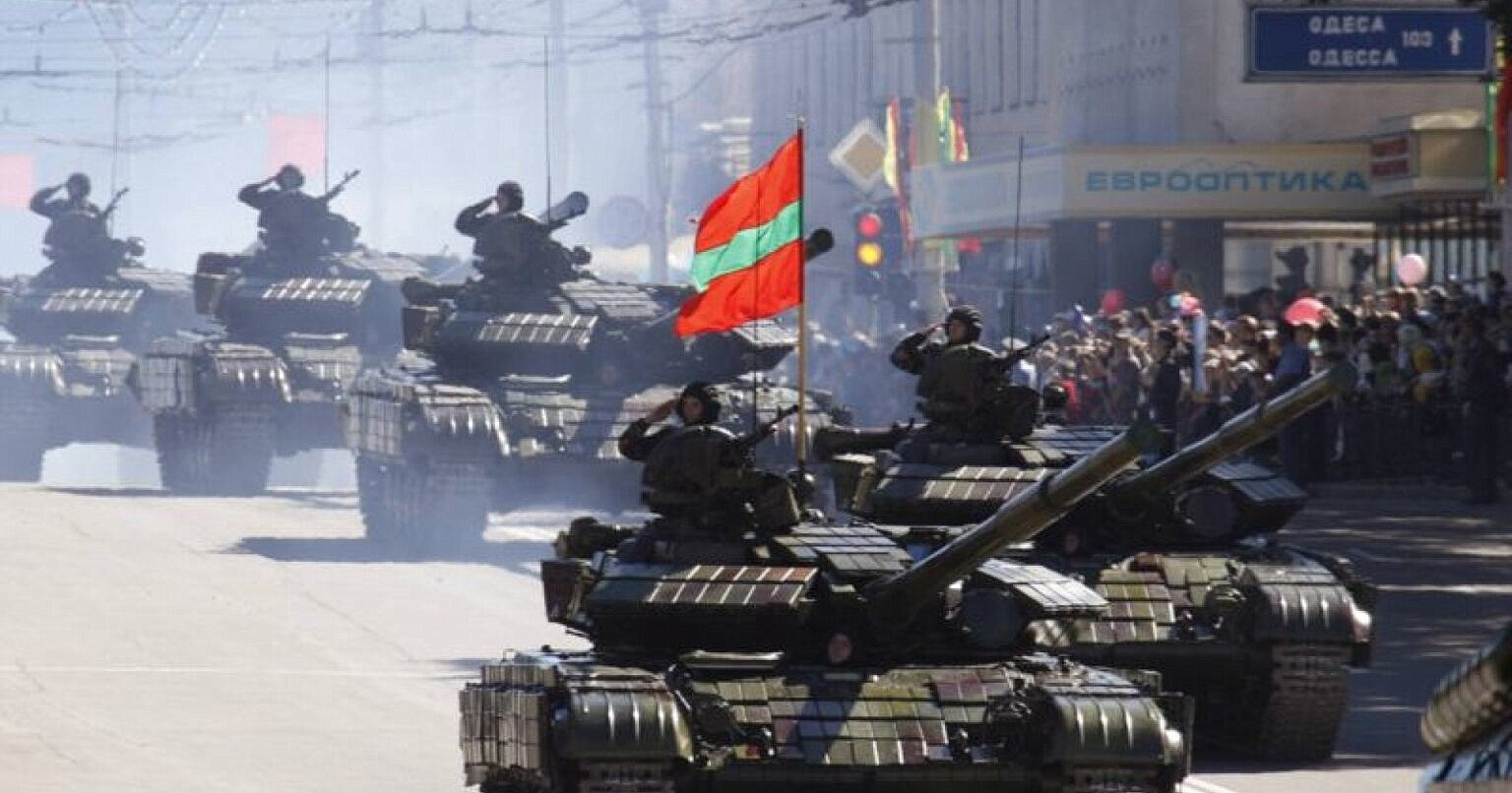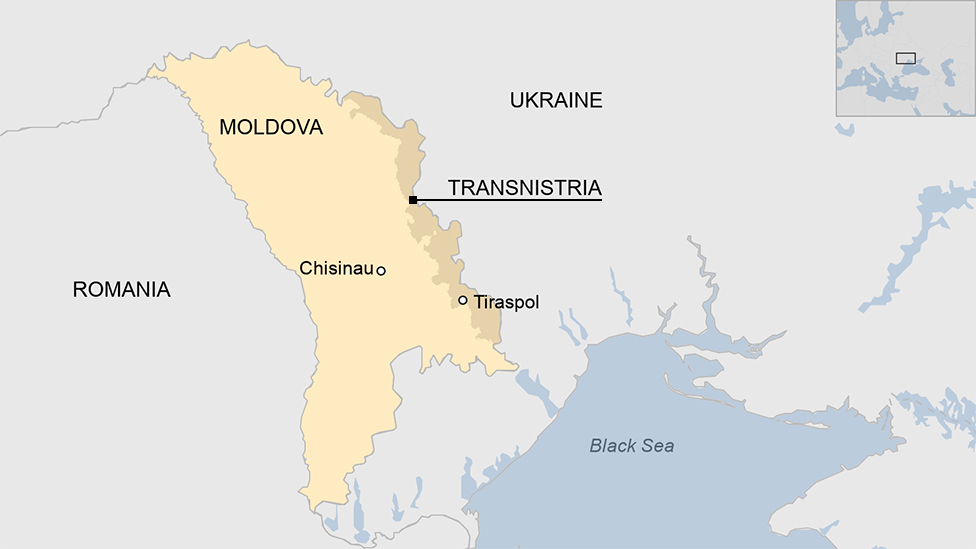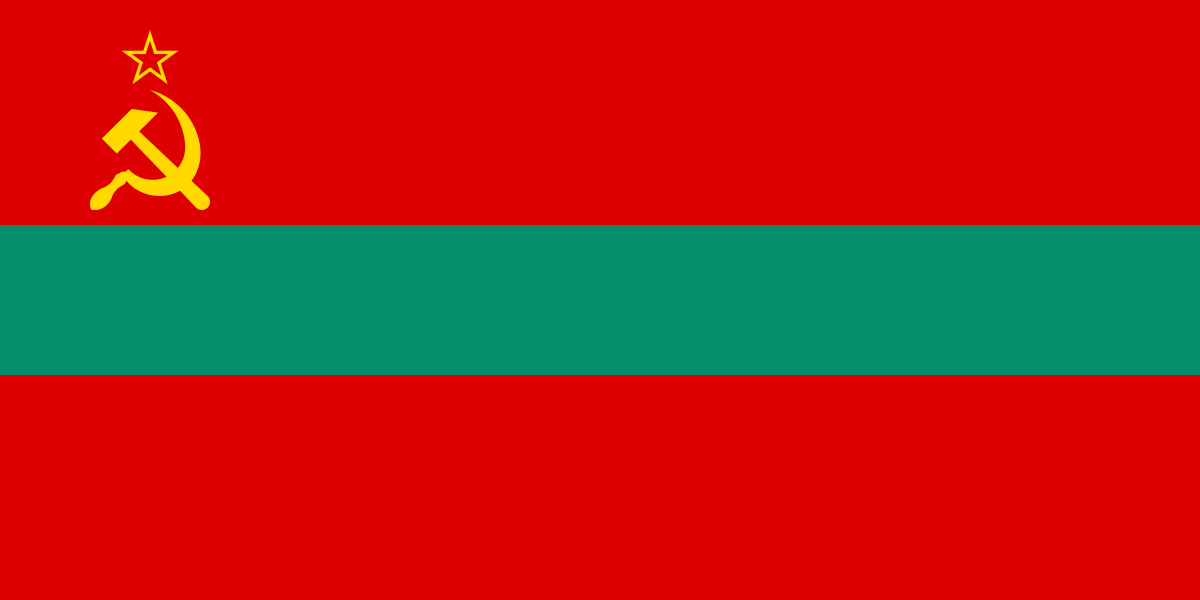International
Transnistria appeals to Moscow for protection. Troubles are brewing

Pro-Russian officials in the Moldovan region of Transnistria on Thursday appealed for Moscow’s help “in the face of increasing pressure” from outside.
The appeal follows fears that tensions in the territory could open a new front in the conflict between Moscow and neighboring Ukraine at a time of great uncertainty and would involve other states in the conflict.

Why was this appeal made?
On Wednesday, a special congress in the region passed a resolution on the issue.
Officials will ask the Council of the Russian Federation and the State Duma to “implement measures to protect Transnistria in the face of increased pressure from Moldova,” the resolution reads.
Transnistria has maintained confidentiality about its reasons for holding a special congress, only the seventh in its history and the first since 2006. At that congress, deputies announced a referendum on integration with Russia, a vote that saw an overwhelming majority in favor. A situation that would create a new Russian enclave on the borders of the EU, after Kaliningrad.
However, the congress said officials would take up the issue of customs duties with the government in the Moldovan capital, Chisinau.
“The decisions of the current congress cannot be ignored by the international community,” the self-styled republic’s “head of foreign policy,” Vitaly Ignatiev, told the meeting. Ignatiev did not indicate what these decisions would be.
The congress said the Moldovan government has waged an “economic war” against the region, blocking crucial imports and trying to turn it into a “ghetto.” This year, Moldova introduced customs regulations requiring Transnistrian companies to pay import duties to the Moldovan budget.
Anastasia Pociumban of the German Council on Foreign Relations told DW that Transnistria’s demands are “moderate” and most likely related to the region’s difficult economic situation.
Moldovan border villages fear Russian invasion.
Russia said it considers Transnistria and the protection of its residents important.
“Protecting the interests of Transnistrian residents, our compatriots, is one of our priorities,” the Foreign Ministry was quoted by Russian state news agencies as saying.
Meanwhile, Moldovan Deputy Prime Minister Oleg Serebrian said Moldova rejects “propagandistic statements coming from Tiraspol [Transnistria’s nominal capital].”
Earlier, a Moldovan government spokesman said that “there is no danger of escalation and destabilization of the situation in the Transnistrian region. This is another campaign to create hysteria.”
Meanwhile, the Ukrainian Foreign Ministry warned against any Russian interference in Transnistria. It called for “a peaceful resolution of economic, social, and humanitarian issues between Chisinau and Tiraspol without any destructive external interference.”
For its part, the United States said it “firmly supports Moldova’s sovereignty and territorial integrity within its internationally recognized borders.”
“Given Russia’s increasingly aggressive and destabilizing role in Europe, we are watching Russia’s actions in Transnistria and the situation in general very closely,” said State Department spokesman Matthew Miller.
What is Transnistria?
This small, predominantly Russian-speaking strip of land lies between the Dniester River and the border with Ukraine.

Transnistria’s Flag
Transnistria broke away unilaterally from Moldova after the collapse of the Soviet Union. Russian troops that were part of the Soviet Army in 1992 withdrew to this region, making it independent and depositing a large stockpile of weapons and ammunition there.
The separatists fought a war with the pro-Western government of Moldova in 1992, which ended with hundreds of deaths and the intervention of the Russian army alongside the separatists.
After the large-scale invasion of Ukraine, Moldova fears that Russia may use Transnistria to open a new front in the southwest, toward Odessa.
Moscow is accused of trying to destabilize Moldova, which has been granted official candidate status for European Union membership in June 2022. Moldova has close relations with Romania. Transnistria has a population of less than half a million and, despite the large arsenal of weapons left after the end of the Soviet Union, could not defend itself without Russian help.
Meanwhile, the territory’s pro-Russian leadership accuses Kyiv of plotting to attack it.attack it.






